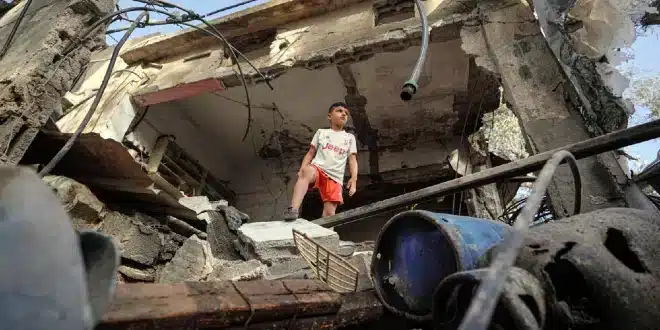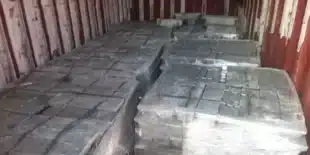Israel continued its bombardment of the Gaza Strip, including Rafah, on Saturday, despite an order from the International Court of Justice (ICJ) to “immediately halt” its military offensive in the southern city. This development comes as renewed efforts are underway in Paris to secure a ceasefire following Hamas’s unprecedented attack on Israel on October 7.
The ICJ’s decision, prompted by South Africa’s allegations that the Israeli military operation constitutes “genocide,” also called for the immediate release of hostages held by Palestinian militants. Although the ICJ’s orders are legally binding, they lack direct enforcement mechanisms.
Israel has shown no intention of altering its course in Rafah, asserting that the court’s judgment is incorrect. “Israel has not and will not conduct military operations in Rafah that could create living conditions leading to the destruction of the Palestinian civilian population,” said National Security Adviser Tzachi Hanegbi in a joint statement with a foreign ministry spokesman.
Hamas welcomed the ICJ ruling regarding Rafah but criticized its exclusion of the rest of Palestinian territories from the order. Despite the court’s ruling, Israeli strikes on Gaza persisted, with reports of attacks in Rafah and Deir al-Balah.
Palestinian witnesses and AFP reported continued fighting, with many expressing hope that the ICJ’s decision would pressure Israel to end the conflict. The court’s order also called for allowing U.N.-mandated investigators access to Gaza and demanded the opening of the Rafah crossing for humanitarian aid.
The Gaza conflict erupted after Hamas’s October 7 attack, which killed over 1,170 people in Israel and resulted in the capture of 252 hostages. The Israeli offensive in response has resulted in at least 35,857 deaths in Gaza, primarily women and children.
Efforts to secure a ceasefire have intensified, with CIA chief Bill Burns expected to meet Israeli representatives in Paris. French President Emmanuel Macron and top diplomats from Qatar, Saudi Arabia, Egypt, and Jordan have also been involved in talks to press for a ceasefire and discuss the establishment of a Palestinian state alongside Israel.
U.S. Secretary of State Antony Blinken has been in discussions with Israeli officials to achieve a ceasefire and reopen the Rafah border crossing. Meanwhile, the humanitarian situation in Gaza remains dire, with significant risks of famine and non-functioning hospitals. U.N. humanitarian chief Martin Griffiths emphasized the critical need for a ceasefire and the release of hostages, calling for an end to the ongoing crisis.


